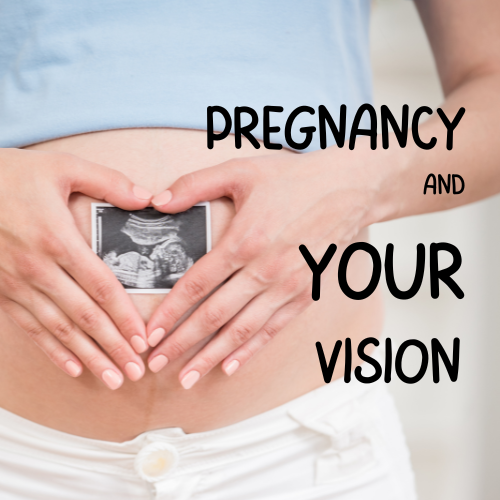Does Pregnancy Decrease Vision?


How does pregnancy decrease vision?
Hormones produced by the placenta and ovaries during pregnancy can also affect your eyesight. Most of the issues are minor and temporary, but there are some that require prompt medical attention.
These are the common changes in vision during pregnancy:
Blurry Vision
The blurry vision is often caused by fluid retention which temporarily changes the shape of the cornea. As a result, the light entering the eye isn’t focused properly. When your hormone levels return to their pre-pregnancy levels, the blurry vision usually clears.
Blurred vision is also a common side effect of dry eye syndrome which is a condition in which the tear film does not adequately lubricate the eye’s surface. The eye dryness is usually caused by the hormonal changes of pregnancy and will clear up after giving birth. Make sure you are drinking plenty of water and use over-the-counter lubricating eye drops to keep your eyes moist.
Less commonly, blurred vision can indicate gestational diabetes—a pregnancy complication affecting about 6% of pregnant women. This type of diabetes lasts until delivery and must be closely monitored by a doctor.
On rare occasion, abnormal fluid collection can occur in the retina. Central serous retinopathy is a condition of the retina where pockets of fluid accumulate in the macula causing distorted and blurry vision. The fluid can resolve on its own.
Eye Puffiness
The hormonal changes that cause water retention may also cause your eyelids to retain water and appear puffy. You may also have darker areas under your eyes. Limiting salt and caffeine intake can help with this issue.
Migraine Headaches
Migraine headaches linked to hormonal changes are very common in pregnant women and in some cases migraine headaches can make the eyes feel more sensitive to light. Be sure to talk with your doctor before taking a prescription or non-prescription migraine headache medications.
Visual Symptoms That May Indicate a Medical Problem
The following visual changes call for a prompt visit to your eye doctor or obstetrician to rule out any serious medical issue:
Flashes or Floaters
Seeing flashes of light or floaters or spots in your vision during pregnancy could be a sign of high blood pressure. The spots could be scotoma and not actual floaters. A scotoma is an area of partial alteration in the field of vision surrounded by a field of normal vision. A scotoma can indicate preeclampsia, a severe pregnancy complication that elevates the blood pressure and creates excessive protein in the urine. If preeclampsia progresses to eclampsia it can cause seizures and loss of consciousness.
Sensitivity to Light
Light-sensitivity can be a normal side effect of fluid retention in the eye, or it could signal dangerously high blood pressure and preeclampsia.
Gregory Scimeca, M.D.
Ophthalmologist and Medical Director
The Eye Professionals
Our Locations
